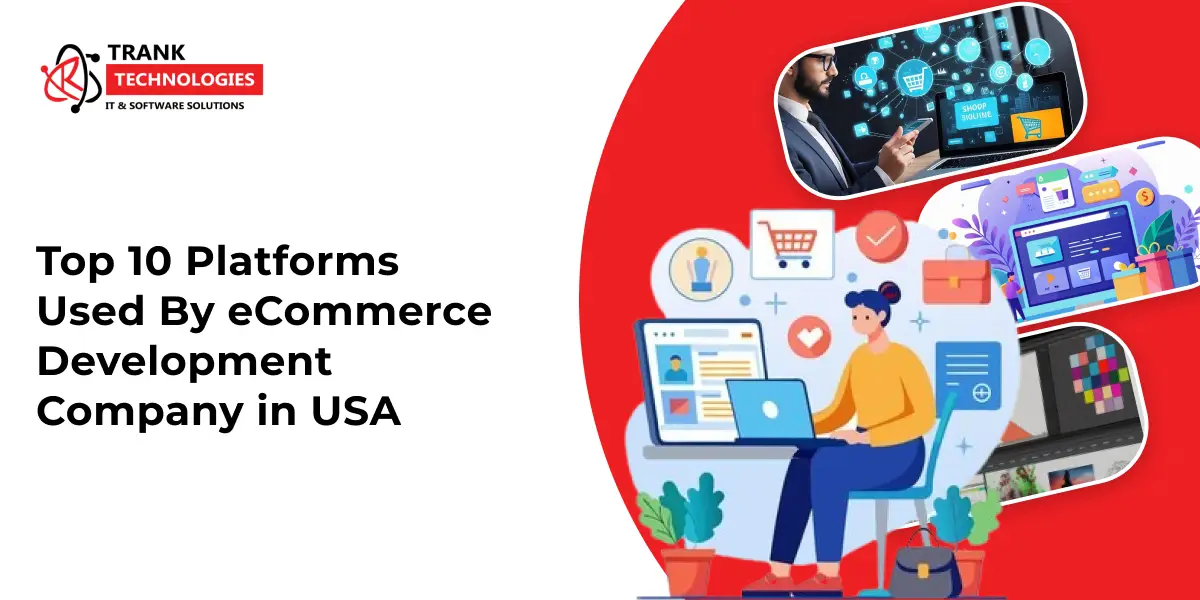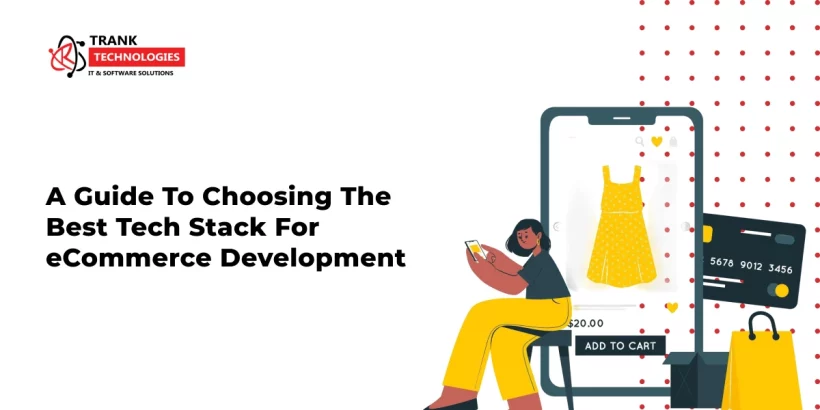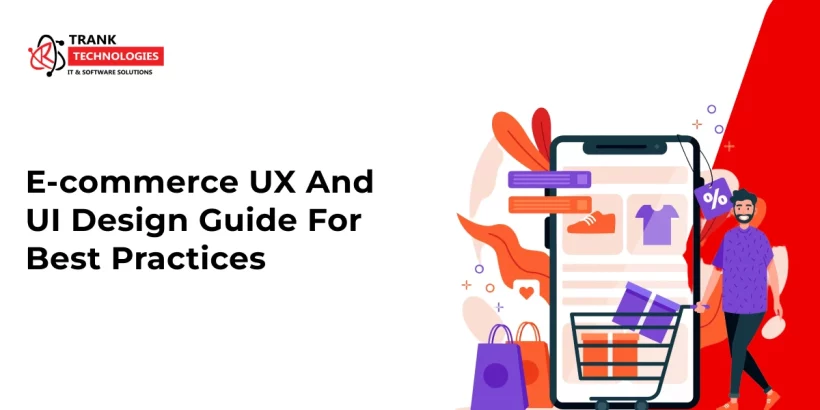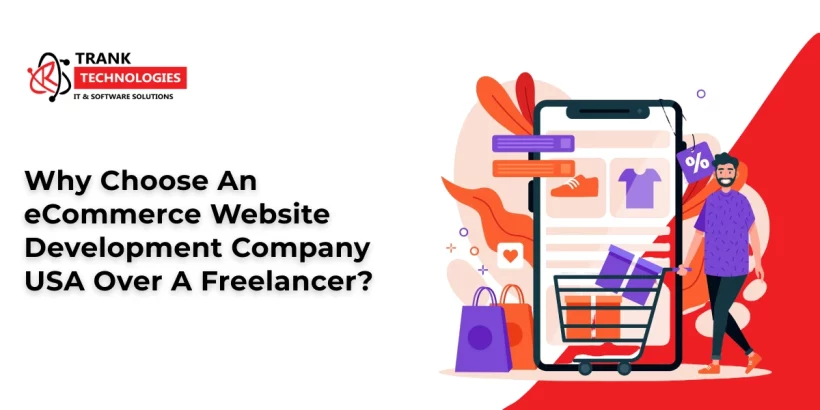
Top 10 Platforms Used By eCommerce Development Company in USA
Due to today’s competitive industrial environment, relying solely on good products will not be sufficient to run an online store and attract consumers. Physical stores are no longer the only way to shop. The growth of online shopping has heightened the need to find the best among top eCommerce development companies in the USA.
There are several ways for business owners to maximize their sales. To achieve this, you must find the best eCommerce tool or platform that corresponds to the project’s objectives, such as reaching the audience, showcasing the products, and managing the revenue for the project. In this blog, we will discuss some of the best eCommerce platforms used by every eCommerce website development company in USA, and the pros and cons associated with each of them.
A Compiled List Of The Top 10 eCommerce Platforms
Look at the top 10 eCommerce platforms offering different options and features for various business requirements.
1 – Shopify
Most retailers are looking for an eCommerce platform that provides out-of-the-box functionalities. However, it’s hard to beat Shopify in terms of eCommerce platforms. It lets an eCommerce web development company create your website, integrate multiple applications, and provide access to shopping cart software and other significant features.
Features
- 8000+ app integration
- Supports multiple payment methods.
- Supports dropshipping.
- Provides other product management tools.
Pros
- Ideal platform for creating online stores for both small and large businesses.
- Numerous third-party plugins.
- Flexible themes and functional designs (Paid & Free)
Cons
- Less-built-in features.
2 – WooCommerce
Like Shopify, WooCommerce is not a standard platform. Instead, it’s a WordPress eCommerce plugin. For easy understanding, if you already have a WordPress-based website and are comfortable using it for your online store, you can implement eCommerce compatibility by downloading the WooCommerce plugin.
Features
- Multiple third-party integrations.
- Supports help-desk
- Supports multiple languages and currencies
- Customizable themes
Pros
- Easy to use and compatible.
- Unlimited scalability.
- The open-source nature makes it highly customizable.
- Reasonable if you already have a WordPress site.
Cons
- Exclusively for WordPress users.
3 – BigCommerce
BigCommerce is another full-service eCommerce development platform and one of the right choices for top eCommerce development companies. This platform has countless features, including highly customizable websites, search engine optimization with analytics, and numerous payment gateways. Hence, if you want to start building your online store with BigCommerce, there are plenty of easy-to-use tutorials for beginner and tech-savvy developers.
Features
- Customizable layouts and designs.
- Fast-loading speed.
- Top-notch security.
- Effective web page builder and visual editor.
Pros
- 24/7 customer service.
- Offers many visually appealing website themes.
Cons
- Most themes are paid.
4 – Wix
Wix is a website builder that enables you to create an all-inclusive online store that sells products, publishes blogs, and promotes your business, like Shopify and BigCommerce. It is a reasonable and beginner-friendly tool. For small businesses, its drag-and-drop features enable eCommerce development company in USA to design and develop well-functioning eCommerce websites without coding experience.
Features
- 900 + customized and free website design templates.
- Blogging tools are available to boost content marketing campaigns.
- AI Features for more customization.
- Numerous themes for unique web page design.
Pros
- Easy to utilize drag-and-drop option.
- Free domain name facility for the first year with the annual plan.
- User-friendliness
Cons
- Consumers will need third-party applications for more advanced features.
5 – OpenCart
Based on PHP language, OpenCart is an open-source eCommerce platform. This toll offers two versions: Free and Paid (Cloud Store). There are approximately 2500 websites successfully built using this platform.
Features
- Offers a complete set of reports and metrics
- Effective and customizable platform
- No monthly fee
Pros
- No transaction fees
- Flexibility
- More than 13000 functional modules
- Easy-to-use themes
Cons
- Technical skills required
- Offers a slow checkout experience
6 – Magento
Magento is also a very famous eCommerce platform utilized by every eCommerce website development company in USA to help brick-and-mortar stores build an online identity. This platform empowers business owners to customize their site’s functionality according to their requirements and craft exceptional customer experience.
Features
- Multiple checkout possibilities
- Store management tools availability
- Catalog management
- Robust security
Pros
- Customizable and flexible
- Multiple features and robust functionally
- Scalability
- Mobile-friendly
- Omnichannel support
Cons
- Expensive development cost.
- High technical knowledge is required
- Lengthy project timelines.
7 – Squarespace
Squarespace is another vibrant eCommerce platform. eCommerce development companies in the United States utilizing this platform offer a variety of attributes to create online stores. This platform has been designed to be accessible for beginner and experienced website developers.
Features
- Customizable webpage and content layouts
- Pre-built layouts
- Universal asset uploading
- Professional website builder.
Pros
- Drag-and-drop system
- High-quality templates
- Unlimited Storage
Cons
- No phone support
- Too structured
- No free plan is available
8 – Shift4Shop
Shift4shop is another of the best eCommerce platforms used by eCommerce development companies in United States. Its many useful features and drag-and-drop interface functionality enable you to build your online store, even if you are a beginner. Unlike other eCommerce platforms, this tool has a pre-built customer relationship management system. Hence, third-party integrations will not need to track customer interactions.
Features of Shift4Shop
- Responsive (mobile-friendly) themes and designs.
- It lets you change store language.
- Drag-and-drop website builder.
- Features to integrate with Google Accelerated mobile pages for mobile optimizations.
Pros
- A built-in CRM system.
- Convenient page builder
- Mobile-friendly page designs
Cons
- Only upscale plan users can auto-ship.
- Least possible personalization options.
9 – Hostinger
Hostinger is a well-known web hosting provider that provides a platform that functions as an online store. This tool helps business owners build and host their online store in one place. The platform supports an intuitive drag-and-drop interface. Additionally, designer-made templates help businesses create their online store quickly. This builder plan includes website hosting and a free domain name for an all-inclusive, all-in-one solution.
Features of Hostinger
- Access to 20 + payment methods.
- Sell up to 500 products.
- Built-in logo maker that requires additional costs.
- Built-in SEO (search engine optimization tools).
- AI writer for product descriptions
Pros
- Excellent value for a range of features.
- Strong security measures.
- Supports multiple languages and currencies.
- Accepts multiple payment methods worldwide.
Cons
- Limited scalability for more complex online store websites.
10 – PrestaShop
PrestaShop is an open-source eCommerce website builder platform established in 2007. Numerous top eCommerce development companies in the USA still use it.
Features
- Available in more than 75 languages
- Supports numerous currencies.
- Offers more than 6000 themes.
Pros
- Budget-friendly options
- Easy-to-use
- Flexible and Scalable
- Reliable payment options
- Multilingual & Multicurrency options
Cons
- Limited Features
- Security issues
Also Read: How Much Does An eCommerce Website Cost In California, USA?
Conclusion
To help you pick the best eCommerce platform for your business, recommended by top eCommerce development companies in the USA, we have outlined the 10 most effective eCommerce frameworks/platforms/tools with their features, pros, and cons. However, the platform is accountable for determining a scalable online store with a great shopping experience. Choose your eCommerce platform wisely as per your project requirements. Additionally, the right platform for your online store will depend entirely on how you want to run your business and attract more customers.







